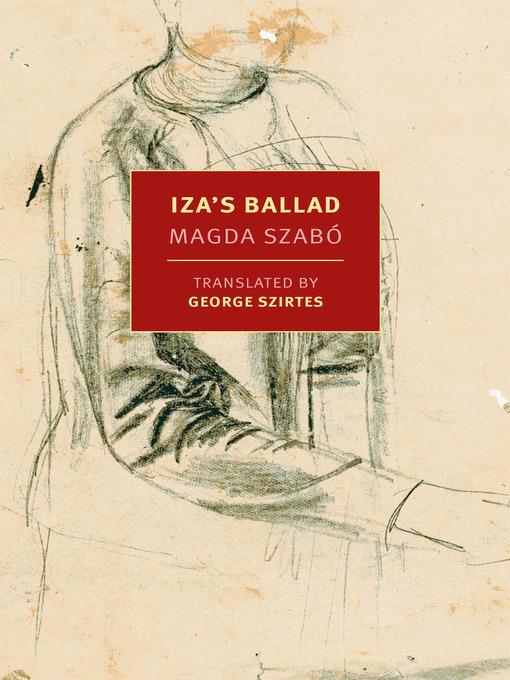
Iza's Ballad
کتاب های مرتبط
- اطلاعات
- نقد و بررسی
- دیدگاه کاربران
نقد و بررسی

August 8, 2016
In this contemplative family narrative, Szabó (The Door) introduces us to Ettie, and her daughter, Iza, shortly after Ettie’s husband, Vince, dies. Set in Hungary in 1960, the novel follows housewife Ettie in the days and weeks after Vince’s death. Iza, a successful doctor, tries to comfort her mother by arranging everything, but her efforts to tidy up her father’s estate only further isolate Ettie. Iza sells the rural family home and brings her mother to live with her in the big city of Pest. There, with live-in help, Ettie has no chores to complete and no one to talk to. “Everything required for comfort was present and correct but she still felt as though she had been robbed.” The story jumps around in time as Ettie nostalgically recalls her many years with Vince. Ettie is also fond of Antal, Iza’s ex-husband, who purchases their old home in the village, and she worries that Iza will never find a suitable replacement. Antal, however, falls in love with Lidia, the young nurse who cared for Vince in his final days. A subdued and melancholy meditation on grief and mourning, Szabó’s novel is the work of a sophisticated storyteller who confronts how memories are constructed.

A man's death changes reality for his widow and daughter. Originally published in Hungary in 1963, this newly translated novel by Prix Femina Etranger winner Szabo (1917-2007) (The Door, 2003, etc.) explores the clash of cultures between the country's rural villages, mired in tradition, and its capital city, Budapest, uneasily sloughing off personal and collective memory. Szabo's gentle, deliberate narrative begins in 1960 with the death of Vince Szocs, a judge whose career was truncated when he made a decision opposed by the rightist military regime; he was 66, already weakened by illness, when he was finally "rehabilitated." He and his wife, Ettie, lived a simple, circumscribed, rustic life. Ettie "didn't trust machines" or even "things as basic as electricity." She preferred candles and toasting bread over a fire; "when the fire was lit she didn't feel she was alone, not even when the house was empty." The couple's daughter, Iza, takes charge the moment Vince dies, insisting that her mother come to Budapest, where Iza is a respected, well-paid physician. "What a delight it must be to move to Budapest," neighbors thought, "to leave sad memories behind and to enjoy a happy old age in new circumstances." But Ettie becomes disoriented and lonely in her daughter's modern apartment, where a housekeeper cleans and cooks, where she has no friends and nothing to do, and where she cannot feel Vince's spirit. As the story unfolds, Szabo reveals the complexities of the past, not only for Ettie, but also for Iza, whose coldness and self-discipline seem inexplicable to many who know her; Iza's estranged husband; and his fiancee, a nurse who once deeply revered Iza but comes to pity her: "The poor woman believes that old people's pasts are the enemy," Lidia realizes. "She has failed to notice how those pasts are explanations and values, the key to the present." Ghosts, angels, and demons hover in this quiet meditation on grief, love, and history. COPYRIGHT(1) Kirkus Reviews, ALL RIGHTS RESERVED.

























دیدگاه کاربران